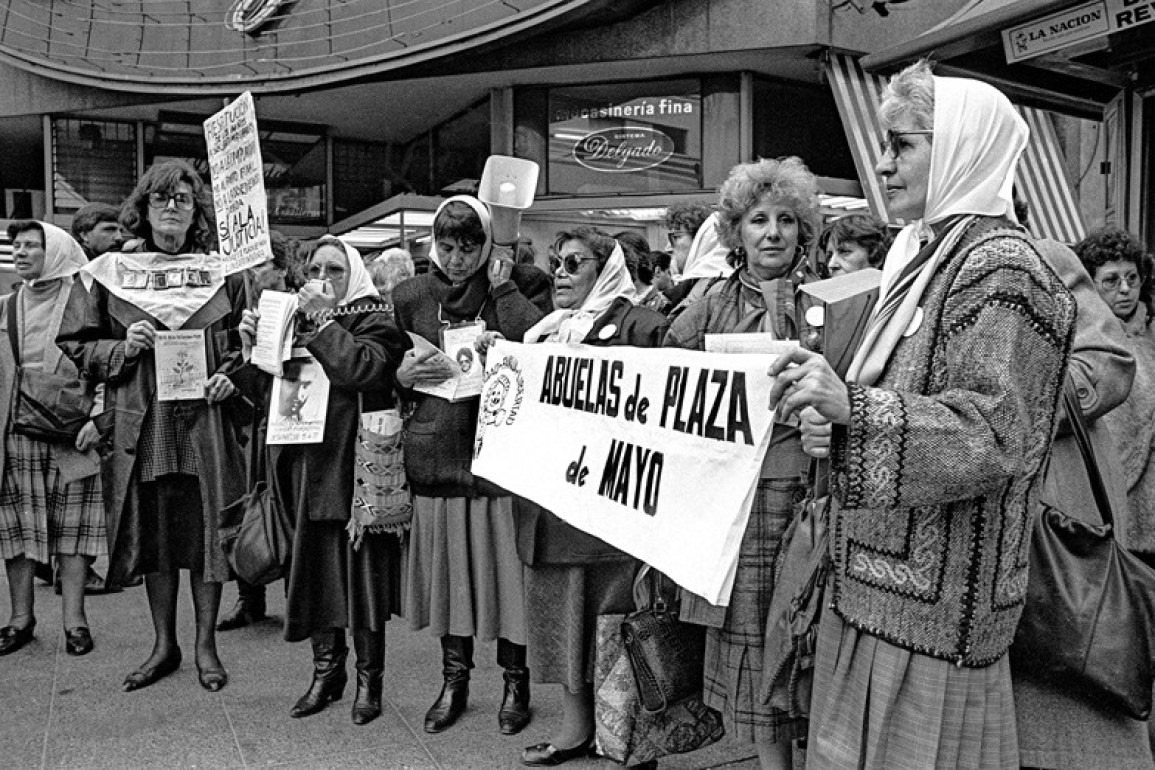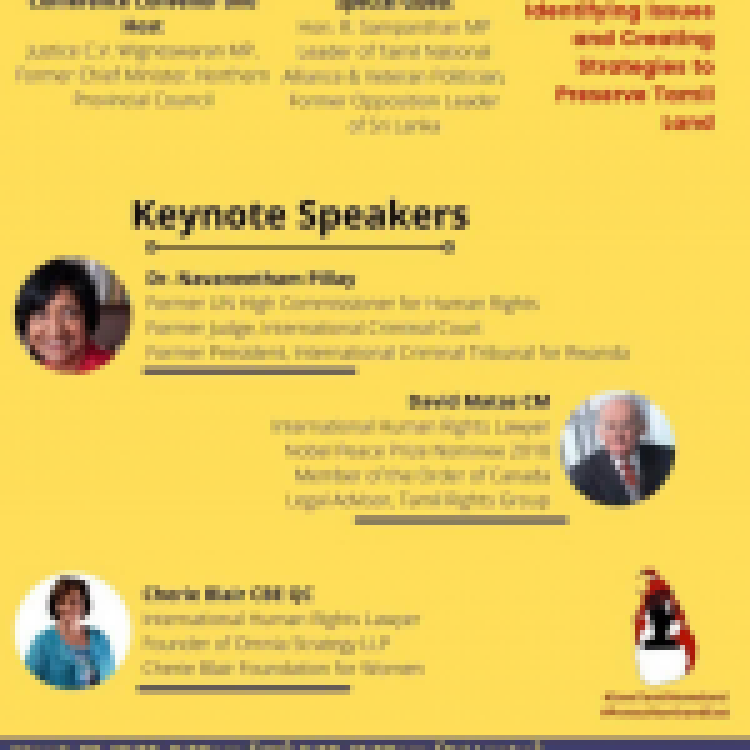
(Photo of the Grandmothers of Plaza de Mayo)
In a joint statement, signed by the Grandmothers of Plaza de Mayo and a number of South American human rights organisations dealing with forcible disappearance, they call on the UN Human Rights Council to pass the draft resolution on Sri Lanka.
The statement was also signed by the Grandmothers of Plaza de Mayo; Amnesty International Argentina; Association of Relatives of Missing Detainees (ASFADDES) Columbia; Center for Legal and Social Studies; Relatives of Missing and Detained for Political Reasons; Relatives and Companions of the 12 of the Holy Cross; Never Mais Torture Group - Rio de Janeiro Brazil; Mothers of Plaza de Mayo Founding Line.
The Grandmothers of Plaza de Mayo is a human rights organisation established by the mothers of children kidnapped and “illegally adopted” during the Argentine dictatorship,
Families of the Disappeared
.jpg)
In their statement, they highlight that Sri Lanka has the second largest number of cases of enforced disappearances in the world, and stated that:
“as organisations with a long history of fighting for truth, memory and justice for serious human rights violations, we believe that the creation of this mechanism is essential so that those and other serious violations are not forgotten or repeated”.
For over four years, Tamil Families of the Disappeared have continued their protests in Sri Lanka demanding an accounted for the estimated 100,000 people who were forcibly disappeared during the armed conflict. Whilst disappearances affected all communities, the vast majority of victims, particularly during the last phase of the conflict, were Tamils.
To date at least 78 of the protesters have passed away without receiving justice. The survivors have not relented and have continued their protests across the North-East pushing for the international community to take decisive action on Sri Lanka.
The Grandmothers of de Plaza de Mayo have suffered similar atrocities during the Argentine dictatorship when an estimated 30,000 people around the age of 16-35 were abducted. Some of those who were disappeared were born to mothers imprisoned by the dictatorship.
According to the Inter-American Commission on Human Rights (IACHR), Argentine’s military junta engaged in a systematic effort to illegally pass the disappeared children for adoption out of fear that "the anguish generated in the rest of the surviving family because of the absence of the disappeared would develop, after a few years, into a new generation of subversive or potentially subversive elements”.
In the past, Tamil Families of the Disappeared have drawn inspiration from these mothers.
Deteriorating human rights
The joint statement further highlights the UN High Commissioner’s latest report which detailed increased attacks on civil society organisations, human rights defenders, and journalists. It also noted the increased surveillance of these organisations and relatives of the victims.
The statement goes on to raise concerns over “the trend towards militarisation of the government’s civilian functions threatening democratic institutions”. This is highlighted through the appointment of senior Sri Lankan military officials to key cabinet positions despite numerous accusations of human rights abuses.
Sri Lanka’s regression and “community to impunity for these serious violations” is further raised as a key concern.
Empty promises
Responding to the claim of the Sri Lankan government that they would pursue justice through a domestic commission, the Grandmothers of Plaza de Mayo highlight that:
“Sri Lanka has a long history of nationally designed and executed accountability process, the repeated failures of which have led to mistrust and anger on the part of the victims”.
Their scepticism is shared not only by the UN High Commissioner for human rights but also by a number of senior former and current UN officials and international law experts. In a joint statement, these officials and experts decried the domestic commission as a “meta-investigation” and stating that it had gotten “to a point that would be laughable were it not for the seriousness of what is at stake”.
The joint statement maintains that:
"The international community can no longer accept empty promises of national accountability processes".
Instead, the joint statement is pushing for the Human Rights Council to “launch a new process or mechanism to pursue to objectives of resolution 30/1: ending the cycle of impunity and advancing accountability for international crimes with a view to deterring future violations, especially against minority communities and civil society groups”.
The statement call on all member states to support to resolution addressing the human rights crisis in Sri Lanka, noting that a failure to do so “would be to send a very dangerous message that even a state accused of the most serious crimes under international law can escape the significant scrutiny of the HRC”.
The UN Human Rights Council is set to vote on the resolution on Monday 22 March.
Read the full statement in English here.
Read the original statement here.



